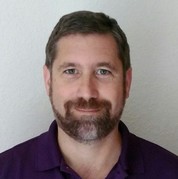Geoffrey Zweig: Achieving Human Parity in Conversational Speech Recognition
Abstract: The Switchboard-1 Telephone Speech Corpus was originally collected by Texas Instruments in 1990-91, under DARPA sponsorship, and marked the beginning of over 25 years of intensive effort in conversational speech recognition. Recently, we have measured the ability of professional transcribers to transcribe this sort of data, and found that our latest systems have achieved the same level of performance. In this talk, I will describe the key technological advances that have made this possible: the systematic use of CNN and LSTM acoustic models in both acoustic and language modeling, as well as the extensive use of system combination. The talk will also provide an analysis of the errors made by people and computers, which show substantially similar error patterns, with the exception of confusions between backchannel acknowledgments and hesitations.
Bio: Geoffrey Zweig is a Partner Research Manager at Microsoft, in charge of the Speech & Dialog Research Group, and responsible for advancing the state-of the-art in speech recognition and dialog systems. Recent work includes the development of the Custom Recognition Intelligent Service (CRIS) and the Language Understanding Intelligent Service (LUIS) in Microsoft’s Cognitive Services suite, as well as ground-breaking performance on the conversational speech recognition task. Supporting this work is Microsoft’s CNTK neural net toolkit, developed by researchers on Dr. Zweig’s team.
Prior to joining Microsoft in 2006, Dr. Zweig worked at IBM Research for eight years, most recently as the manager of the Advanced LVSCR research group, where he led a team of researchers to develop English, Arabic and Mandarin speech recognition systems for the DARPA EARS and GALE programs. Dr. Zweig received his PhD in 1998 from the Computer Science Department of the University of California at Berkeley. He has served as Associate Editor of the IEEE-TASLP and is currently on the editorial board of CSL, and is an IEEE Fellow. Dr. Zweig has published over 80 papers and holds numerous patents for his work.


